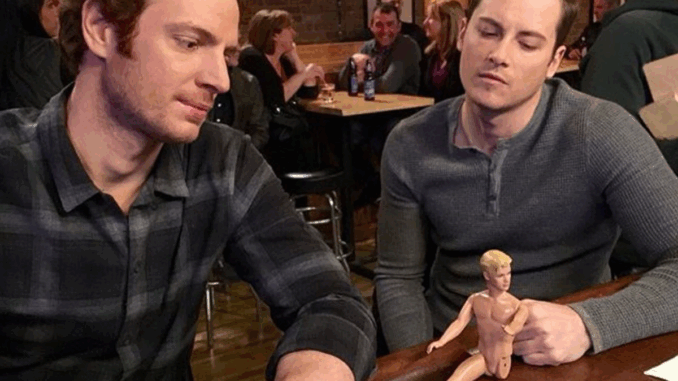
There’s the Chicago you see on TV — the blazing infernos, the high-stakes surgeries, the late-night interrogations.
And then there’s the real Chicago — the one behind the cameras, where silence is golden, and every star knows the unspoken rules that can make or break a career.
For over a decade, One Chicago has dominated NBC’s primetime. With Chicago Fire, Chicago P.D., and Chicago Med, the franchise has built a shared universe bigger than most movie sagas. But success comes with a price — and insiders say that price is control.
“You sign that contract, and you know you’re stepping into something huge,” one former cast member revealed. “But it’s also a machine. And the machine has rules.”
Rule #1: No Spoilers, No Hints, No Accidents
Leaks are a nightmare for NBC — and One Chicago has had its fair share of near-disasters.
From characters dying unexpectedly to crossover scripts that reveal too much, the studio has reportedly tightened its grip on confidentiality.
According to production sources, the cast receives strict non-disclosure clauses covering not just scripts, but even filming locations and on-set photos.
Some actors reportedly have their social media monitored during key episodes. “They don’t want fans connecting dots from a behind-the-scenes selfie,” one insider said.
Even the writers’ room is locked down tighter than Fort Knox — laptops with coded scripts, special watermarks, and digital IDs track who reads what. One Chicago doesn’t just protect its stories. It protects its myth.
Rule #2: No Off-Brand Behavior
Unlike cable or streaming dramas, NBC is still a network built on family viewing — and that means image matters.
Actors are reportedly discouraged from posting explicit content, discussing politics, or publicly clashing with co-stars.
“It’s not like they say it outright,” said a crew member who’s worked on both Fire and P.D. “But you feel it. They want you to be part of the brand — loyal, polished, professional. You represent Chicago.”
This “brand loyalty” reportedly extends beyond social media. If an actor leaves on bad terms, their character may be permanently written off, closing the door for future returns.
And in a world where legacy crossovers are everything, that’s no small loss.
Rule #3: The Cross-Show Code of Silence
You’d think with three shows sharing one universe, stars would talk openly about upcoming crossovers. Not so fast.
Apparently, even actors from different sets are told not to discuss crossover scripts until NBC officially announces them.
A former guest star recalls, “We were filming a massive crossover scene, and even then, no one could confirm who else was involved. It was all on a need-to-know basis — you show up, you shoot, you stay quiet.”
The goal? Maximum secrecy, maximum surprise.
When One Chicago Crossover Night hits, fans lose their minds — and NBC cashes in on the buzz.
Rule #4: Keep the Drama On Screen
The franchise has survived for so long partly because it avoids public scandals. Insiders claim that NBC enforces an unspoken “no-drama” pact — meaning, if there’s tension on set, it stays there.
“If you have a problem, you deal with it privately. Period,” said a long-time production assistant.
“They don’t want leaks, they don’t want chaos. Chicago is a family — a loud one, but a family.”
Of course, fans have noticed the quiet exits — characters disappearing mid-season, “creative differences” that never get explained. Those, sources say, are the results of this rule in action.
Rule #5: Respect the Franchise Hierarchy
In the One Chicago world, respect runs deep — especially toward veterans like Eamonn Walker, Jason Beghe, and S. Epatha Merkerson.
You don’t interrupt their scenes. You don’t improvise over their lines.
And you definitely don’t question the directors — many of whom have been with the shows for over a decade.
That old-school respect is part of what keeps the machine running.
It’s not fear. It’s culture. And in a massive TV universe that shoots nine months a year, culture keeps chaos from spilling over.
Rule #6: No Jumping Ship Without Permission
Actors who move between Fire, P.D., and Med aren’t just lucky — they’re chosen.
NBC reportedly controls every transfer between shows to protect continuity and ratings balance.
An insider explains, “If a fan favorite from Fire suddenly joined P.D., it could shake the audience dynamic. So every crossover casting has to be cleared by multiple execs.”
Even when actors want to jump — say, from a recurring to a lead role — there’s red tape. Contracts, schedules, image approval. NBC plays chess while others play checkers.
The Price of Perfection

So why do they do it? Why stay in a world where the rules are this tight?
Because One Chicago isn’t just a job. It’s a career-defining legacy.
Many actors say the loyalty pays off — in fan love, steady work, and an unshakable sense of belonging.
“When you’re part of One Chicago, you’re part of TV history,” said one veteran.
“It’s not just another show. It’s a universe. And universes don’t last this long without discipline.”
Still, as new shows rise and streaming giants lure talent with creative freedom, fans can’t help but wonder — will NBC’s rulebook survive the next decade?
If the whispers are true, the studio might soon have to choose between keeping control… and keeping its stars.
One Chicago: The City That Never Sleeps — Or Speaks Too Loudly
For now, the cameras keep rolling. Fires blaze, criminals run, doctors save lives.
And behind it all, a silent agreement holds everything together — a pact between fame and restraint, drama and discretion.
Because in One Chicago, the first rule is simple:
What happens behind the scenes, stays behind the scenes.